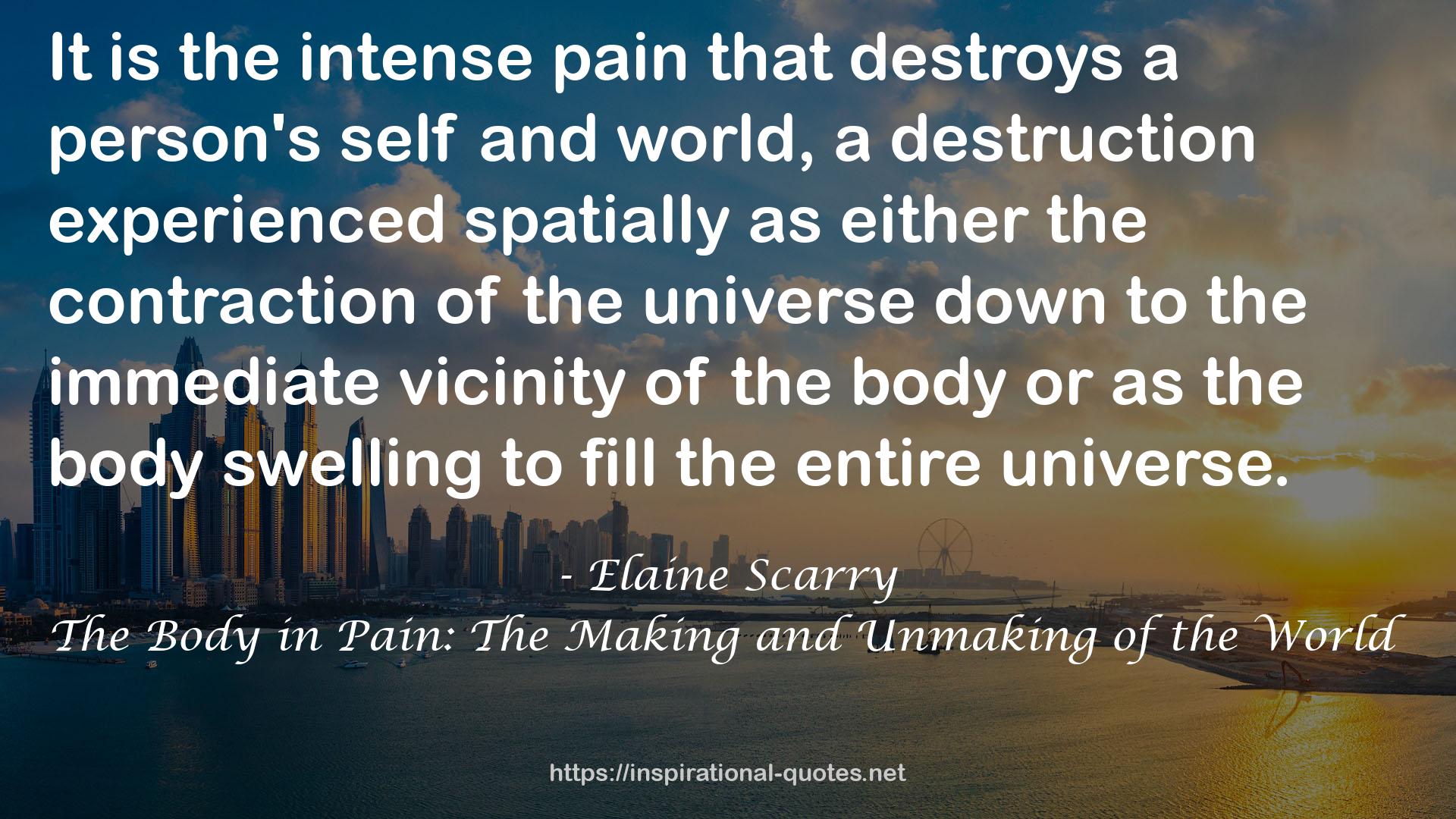9
" He cannot will his entry into and exit from the activity on a daily basis. There is not, as there is for most workers, a brief interval of exemption at the end of the day when he is permitted to enact a wholly different set of gestures; the timing of his eventual exit will by determined not by his own will but by the end of the war, whether that comes in days, months, or years, and there is of course a very high probability that even when the war ends he will never exit from it. Although in all forms of work the worker mixes himself with and eventually becomes inseparable from the materials of his labor (an inseparability that has only its most immediate sign the residues which coat his body, the coal beneath the skin of his arm, the spray of grain in his hair, the ink on his fingers), the boy in war is, to an extent, found in almost no other form of work, inextricably bound up with the men and materials of his labor: he will learn to perceive himself as he will be perceived by others, as indistinguishable from the men of his unit, regiment, division, and above all national group (all of whom will share the same name: he is German) as he is also inextricably bound up with the qualities and conditions – berry laden or snow laden - of the ground over which he walks or runs or crawls and with which he craves and courts identification, as in the camouflage postures he adopts, now running bent over parallel with the ground it is his work to mime, now arching forward conforming the curve of his back to the curve of a companion boulder, now standing as upright and still and narrow as the slender tree behind which he hides; he is the elms and the mud, he is the one hundred and sixth, he is a small piece of German terrain broken off and floating dangerously through the woods of France. He is a fragment of American earth wedged into an open hillside in Korea and reworked by its unbearable sun and rain. He is dark blue like the sea. He is light grey like the air through which he flies. He is sodden in the green shadows of earth. He is a light brown vessel of red Australian blood that will soon be opened and emptied across the rocks and ridges of Gallipoli from which he can never again become distinguishable. "
― Elaine Scarry , The Body in Pain: The Making and Unmaking of the World

